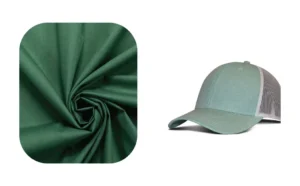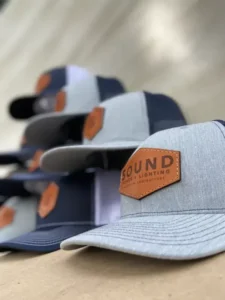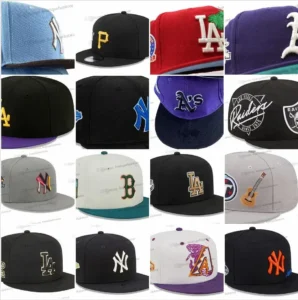Picture this: you’re at a ballgame, sun blazing, and your baseball cap is either squeezing your head like a lemon or slipping down over your eyes. Not cool, right? A cap that fits just right isn’t just about looking dope—it’s about feeling great, whether you’re swinging a bat, chilling with friends, or flexing your street style. To measure your hat size for a baseball cap, grab a flexible measuring tape, wrap it around your head about 1 cm above your ears and eyebrows, keep it snug but not tight, and jot down the circumference in centimeters or inches. That’s the magic number for a cap that feels like it was made for you. Imagine strutting into a party, cap sitting perfectly, and everyone’s like, “Yo, where’d you get that?” Stick with us, and we’ll walk you through every step to make that vibe a reality.
What Tools Do You Need to Measure Hat Size?
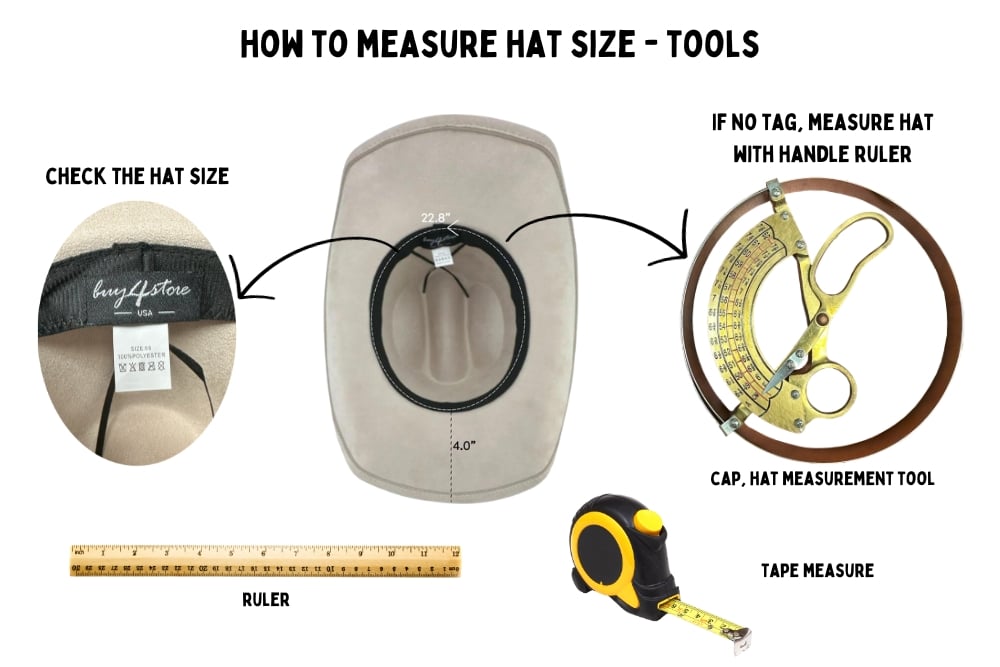
You need a flexible measuring tape, a mirror, and maybe a string with a ruler to measure your hat size accurately. These simple tools help you nail the perfect fit without any guesswork.
Getting Your Tools Ready
Why a Flexible Measuring Tape Rocks
A flexible measuring tape is your BFF here because it hugs the curves of your head like a cozy blanket. Unlike a stiff ruler, it gives you a spot-on measurement. Pick one that’s at least 60 cm (24 inches) long to wrap around comfortably.
Can You Hack It with Household Stuff?
No tape? No stress! Grab a piece of string, like a shoelace or yarn, wrap it around your head, and mark where it overlaps with a pen. Then, lay it flat next to a ruler to measure the length. It’s not as slick as a tape, but it gets the job done.
How to Make Sure Your Tools Are Legit
Check your tape or string for any frayed edges or stretches that could mess up your measurement. If you’re using a mirror, set it up so you can see the tape’s position clearly—maybe prop it on a table. Clean, reliable tools mean you’re not stuck with a cap that’s all wrong.
Are Fancy Gadgets Worth the Hype?
You might see slick digital measuring tools online, but for a baseball cap, they’re like using a sledgehammer to crack a walnut. Basic tools are cheap, easy, and just as accurate. At our factory, we keep it real with practical solutions that anyone can use, saving you time and cash.
Critical Perspective: Do Tools Really Matter That Much?
Sure, a high-end tool might feel pro, but the truth is, a $2 measuring tape works just as well if you use it right. Overcomplicating things can make measuring feel like rocket science, which is why we stick to simple, sustainable methods that vibe with our eco-friendly mission.
| Tool | Use | Why It Matters |
|---|---|---|
| Flexible Measuring Tape | Wraps smoothly around the head for precise measurement | Most accurate and user-friendly tool for hat sizing |
| String + Ruler (Alternative) | Wrap string around head, then measure length against a ruler | Great backup when you don’t have a measuring tape |
| Mirror | Helps you see and adjust the tape/string placement | Ensures you’re measuring at the right spot (above eyebrows & ears) |
| Digital Measuring Tools | Optional tools with screens or apps for head circumference | Often unnecessary—basic tools are just as effective |
| Tool Condition Check | Use clean, non-stretched, accurate tools | Prevents incorrect sizing caused by damaged or worn materials |
How to Measure Your Head for a Baseball Cap?
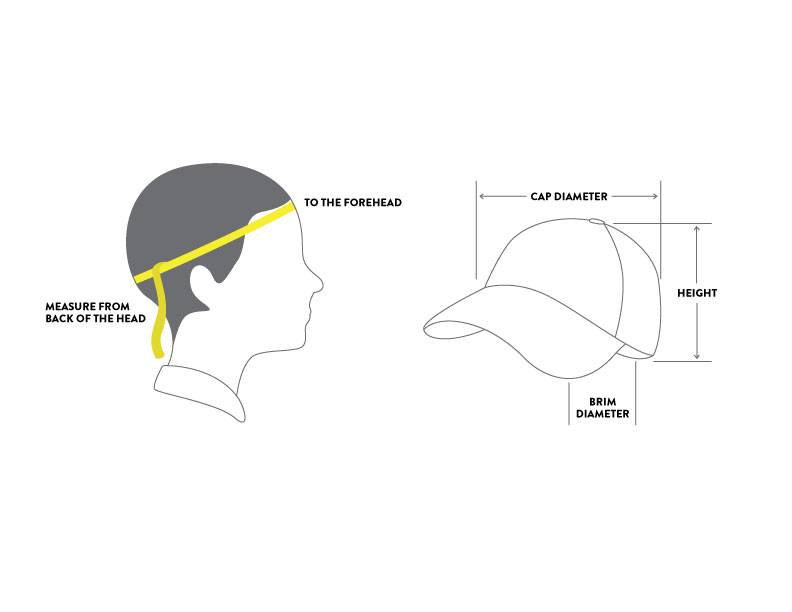
Wrap a flexible tape around your head, 1 cm above your ears and across your mid-forehead, keeping it level and snug. This quick step gives you the exact size for a cap that fits like a dream.
Measuring Like You Mean It
Where Should That Tape Go?
Place the tape about 1 cm (half an inch) above your ears and across your forehead, right where your head’s widest. Don’t let it tilt up or slide down—that’ll throw off your number. A mirror’s super handy to make sure you’re keeping it straight.
Does Your Hair Mess Things Up?
Got a big ‘fro or super thick hair? Press it down gently while measuring to get a realistic fit, like how your cap will sit. If you’ve got a buzz cut, you’re golden—just measure as is. Unique head shapes, like oval or round, usually don’t need special tweaks, but measure carefully anyway.
How to Be Sure You Got It Right?
Measure at least twice, maybe three times, to catch any slip-ups. If the numbers don’t match, average them out. Keep the tape snug but not so tight it’s cutting off circulation—think “comfy cap” vibes. Write down your final number in both cm and inches for easy reference.
What If You’re Measuring for Someone Else?
If you’re sizing up a friend or kid, have them sit still and use the same method. Kids’ heads grow fast, so double-check every few months. For wiggly toddlers, a string might be easier than a tape to avoid a meltdown.
Critical Perspective: Is Measuring a One-Size-Fits-All Deal?
Not quite. Everyone’s head is a little different—hair, shape, even how tight you like your cap. A single measurement might work for most, but taking a few extra seconds to measure again can save you from a cap that’s a total miss. Our factory’s sizing process is just as thorough, ensuring every cap we make is spot-on.
| Step | What to Do | Why It Matters |
|---|---|---|
| Position the Tape | Wrap it 1 cm above your ears and across your mid-forehead, keeping it level all around | Ensures you’re measuring the widest part of your head |
| Handle Your Hair | Press down thick hair gently; measure natural head shape | Helps simulate how the cap will actually fit |
| Repeat and Double-Check | Measure 2–3 times, average results if needed | Avoids errors from loose or tilted tape |
| Check Fit Snugness | Tape should be snug but not tight—comfortable, like how a cap feels | Reflects true fit comfort, not just head size |
| Record in cm & inches | Write your result in both units for easy online or in-store shopping | Different brands list sizes in different units |
| Measuring for Others | Use same method, consider using string for kids or restless subjects | Makes measuring easier and more accurate for small/wiggly heads |
Which Baseball Cap Sizes Are Available?
Baseball caps come in XS (53–55 cm) to XL (61–63 cm), with adjustable snapbacks or one-size-fits-most options for flexibility. Most brands stick to standard sizes, but always peek at their chart.
Cracking the Size Code
What’s the Deal with Standard Sizes?
Here’s a handy table to break it down:
| Size | Head Circumference (cm) | Head Circumference (in) | Hat Size (US) |
|---|---|---|---|
| XS | 53–55 | 20.8–21.6 | 6⅝–6⅞ |
| S | 55–57 | 21.6–22.4 | 6⅞–7⅛ |
| M | 57–59 | 22.4–23.2 | 7⅛–7⅜ |
| L | 59–61 | 23.2–24.0 | 7⅜–7⅝ |
| XL | 61–63 | 24.0–24.8 | 7⅝–7⅞ |
Copy this table to your notes for quick reference when shopping!
Why Do Sizes Vary Across Brands?
In the U.S., you’ll see sizes in inches or S/M/L, while Europe and Asia lean toward centimeters. Some brands throw in hat sizes (like 7¼), which can confuse things. Our factory makes it easy with universal charts that work no matter where you are.
Are Adjustable Caps a Game-Changer?
Snapbacks, strapbacks, and velcro caps usually fit a range like 55–61 cm (21.6–24 in). They’re awesome for most people but might not feel perfect for super small or large heads. Fixed-size caps, like the ones we craft, give you that tailored, “this was made for me” feel.
How Do Kids’ Sizes Fit In?
Kids’ caps often come in adjustable styles or smaller fixed sizes (e.g., 50–54 cm for ages 2–6). If you’re buying for a little slugger, measure their head the same way and check the brand’s kids’ chart.
Critical Perspective: Is “One-Size-Fits-Most” a Scam?
Adjustable caps are clutch for convenience, but they’re not a cure-all. If your head’s on the extreme end—super tiny or extra large—you might end up with a cap that’s either too loose or too tight. That’s where our factory’s custom options shine, giving everyone a shot at the perfect fit.
How to Choose the Right Baseball Cap Size?
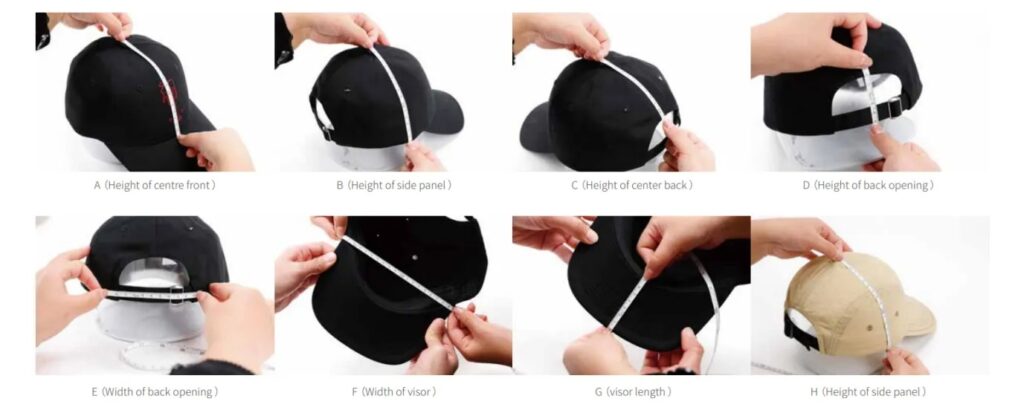
Match your head circumference to a sizing chart, then pick a size based on whether you want a snug or loose fit. Think about the cap’s material and what you’re using it for, too.
Picking Your Perfect Cap
How Tight Should Your Cap Feel?
If you’re into a sporty, locked-in fit (like for baseball or running), go for a size that’s bang-on your measurement or 0.5 cm bigger. For a chill, everyday look, add 1 cm for a relaxed vibe. Try this:
| Fit Style | Add to Measurement | Best For |
|---|---|---|
| Snug | 0–0.5 cm | Sports, active wear |
| Regular | 0.5–1 cm | Casual, daily use |
| Loose | 1–1.5 cm | Streetwear, relaxed |
Do Materials Change the Game?
Caps with stretchy fabrics, like cotton-spandex, give a bit, so you can go slightly smaller. Stiffer materials, like wool or 100% cotton, don’t budge much, so stick closer to your exact size. Our factory uses premium blends that balance stretch and structure for max comfort.
What About Your Activities?
For high-energy stuff like sports, a fitted or snug adjustable cap stays put. For hanging out or styling an outfit, a looser cap or snapback adds swagger. Our caps are built to handle both, with designs that flex for any scene.
Should You Try Before You Buy?
If you can, pop into a store to test sizes. If you’re shopping online, measure carefully and check return policies. Our factory’s sizing guides are super detailed to help you nail it from home.
Critical Perspective: Is Fit All About Preference?
Fit’s partly personal—some folks love a cap that grips tight, others want it breezy. But trends matter, too. In 2025, looser fits are hot in urban fashion, while athletes stick to snug. Our design team stays ahead of these shifts to craft caps that hit every style sweet spot.
Common Mistakes to Avoid When Measuring Hat Size
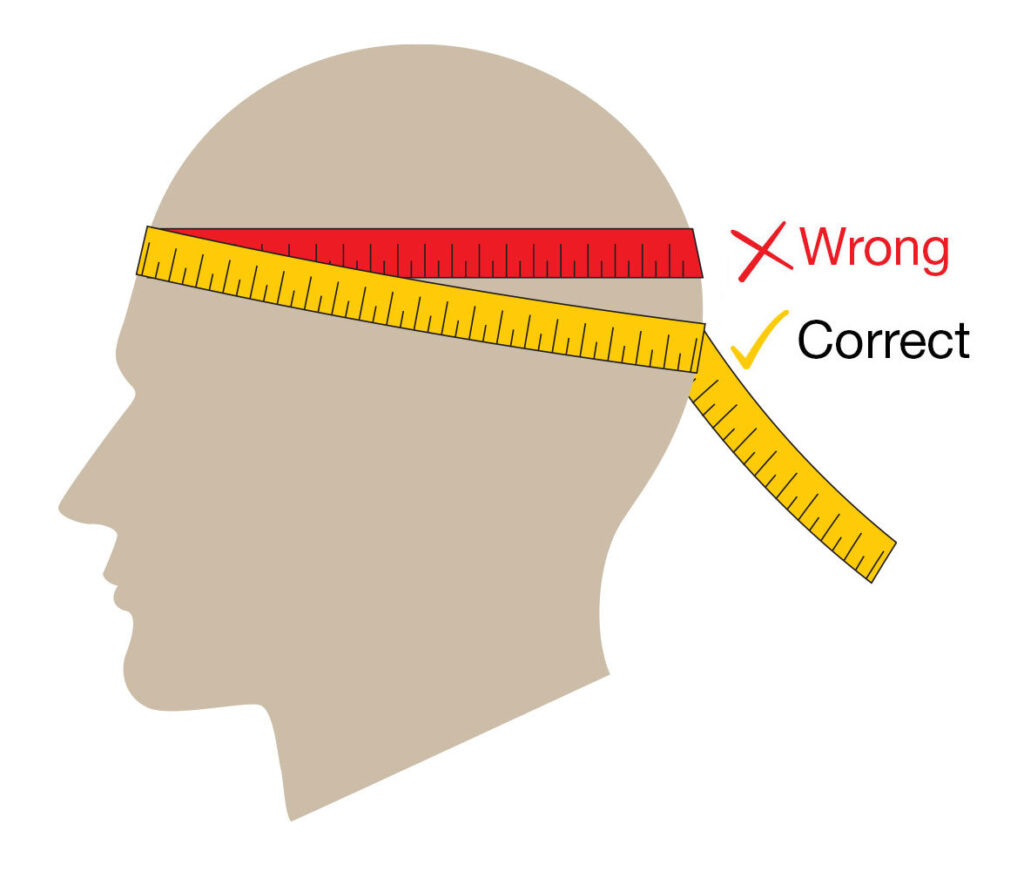
Don’t measure too tightly, use a rigid ruler, or measure over a big hairstyle. These slip-ups lead to caps that pinch, slip, or just feel wrong.
Dodging the Big Oops
Why Measuring Too Tight Is a No-Go
Pulling the tape like it’s a wrestling match gives you a smaller number, so your cap ends up feeling like a torture device. Keep it snug but chill—slide a finger under the tape to check it’s not too tight.
How Does Hair Throw You Off?
If you’ve got a high bun or thick curls, measuring over them adds extra size, and your cap might slide around. Flatten your hair gently or measure when it’s wet and sleek to get the real deal.
Why One Measurement Isn’t Enough?
A single measurement can be off if the tape slips or you’re not paying attention. Take 2–3 measurements at different times (like morning and evening) to catch any weird variations. Average them for a solid number.
What About Using the Wrong Tools?
A rigid ruler or yardstick won’t bend around your head, so you’ll get a wonky measurement. Stick to a flexible tape or string. Our factory’s sizing process is all about precision, and we recommend the same for you.
Critical Perspective: Can You Really Avoid All Mistakes?
Nobody’s perfect—mistakes happen, especially if you’re new to this. But rushing or skipping steps is the real culprit. Taking your time and following our guide cuts down errors big-time. Our factory’s got your back with clear instructions and custom options if standard sizes don’t cut it.
| Mistake | What Happens | How to Avoid It |
|---|---|---|
| Measuring Too Tightly | Results in a size that’s too small; cap feels tight or painful | Keep tape snug, not tight—slide a finger under the tape for comfort check |
| Measuring Over Big Hairstyles | Adds bulk, leading to oversized caps that slide around | Flatten hair gently or measure when hair is wet/sleek |
| Only Measuring Once | One-time slips or misalignment lead to inaccurate results | Take 2–3 measurements and average the results |
| Using a Rigid Measuring Tool | Tools like rulers or yardsticks give distorted readings | Use a flexible tape or string + ruler |
| Rushing the Process | Skipping details causes misfit caps | Take your time and follow a clear guide like this one |
Why Consider Custom Baseball Caps for Perfect Fit?

Custom baseball caps are tailored to your exact head size, fixing any fit issues with standard sizes. They’re a game-changer for comfort and style.
Why Custom Caps Are the Move
How Do Custom Caps Solve Fit Problems?
Standard sizes are great for most, but if your head’s super unique (like extra small or large), they might not cut it. Custom caps are made to your exact measurements, so they fit like they were born on your head. Our factory uses high-tech tools to get it right every time.
What Else Do You Get with Customization?
It’s not just about size—you can pick your colors, add a logo, or choose eco-friendly materials. Want a cap with your team’s emblem or a bold pattern? We’ve got you. Our sustainable fabrics are tough, breathable, and kind to the planet.
How Does Our Factory Make It Happen?
We blend fancy machines with old-school craftsmanship. Every custom cap gets checked for quality—stitching, fit, everything. We use green production methods, like low-waste cutting and recycled materials, to keep things earth-friendly.
Are There Real-Life Examples?
Think of a Little League team needing caps for kids with tiny heads or a streetwear brand wanting oversized caps for a bold look. We’ve made both, tweaking sizes and designs to match their vibe. Your cap can be just as unique.
Critical Perspective: Is Custom Worth the Extra Dough?
Custom caps cost a bit more, but they’re an investment. You’re not tossing out ill-fitting caps or settling for “meh” fits. Plus, they’re sustainable, which vibes with 2025’s eco-conscious trends. Our factory makes customization easy and affordable, so you get max value.
Conclusion
Nailing the right baseball cap size is like finding the perfect pair of sneakers—it boosts your comfort, confidence, and style to the next level. From dodging rookie mistakes to picking the ideal fit, this guide’s got everything you need to rock a cap that feels like it was made for you. At Kinwin, we’re all about crafting top-notch, eco-friendly caps that fit your head and your vibe. Want a cap that’s 100% you? Hit us up at [email protected] to ask about custom orders or check out our sustainable cap lineup. Your head’s begging for the perfect fit—let’s make it happen!



